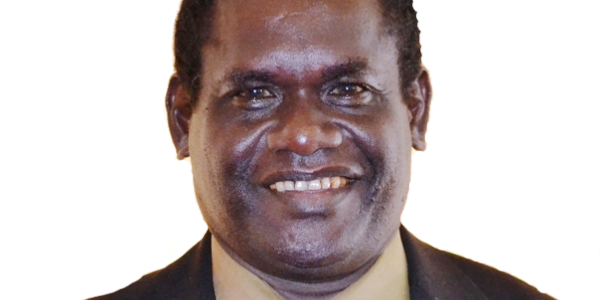LEADER of the Independent Group in Parliament, John Dean Kuku (MP) has called on the DCGA to immediately ban foreigners from applying and obtaining licenses to export beche-de-mer, and give the opportunity to local indigenous resource owners instead.
This calls for drastic improvements in the government’s policy redirection with regard to inshore fishery as well as ‘reserved business’ for Solomon Islanders, Kuku said.
A statement from the Independent Group said, the Leader made the call in the light of the government’s intention to lift the ban on beche-de-mer harvesting to allow for harvesting and export of the marine resource.
Mr Kuku went on to say that “this middle-man structure in our beche-de-mer industry is long outdated and has produced very little benefits for our people. It needs a complete turnaround to a new community cooperative business model that will ensure direct market access and direct benefits to indigenous resource owners”.
The middle-men have not only ripped us off but are also known to have created excessive debts for resource owners through the practice of supplying fuel and ration to designated communities in identified beche-de-mer rich areas ahead of time, whenever the government announces ‘a lifting of the ban’. Those supplies are treated as advance-on-catch, which are then deducted from the final value of the harvest. This often leaves the people with very little money for themselves at the end of the day. This is not on!!!
“Therefore it is incumbent on the government to make the required shift in policy in order to bypass this foreign middle-man system to a more participatory one that places our indigenous rights and interests at the heart of national policy and action. It’s time to give back directly to our communities, he said”.
The sea cucumber fishery is a multi-million dollar industry in the Solomon Islands which provides an important source of income for rural communities, and foreign exchange revenue for the country.
As an export industry in Solomon Islands, there is very little communities can do to control the buying and exporting of beche-de-mer resulting mostly in disempowered and deprived communities. We are simply robbing our people of their ability to lift their own standards of living.
The Leader has strongly suggested that the government must now look at a new modern approach to sustainable development. We can begin by building sustainable partnerships to support Business Finance Sustainability models that would create links with appropriate networks in target market countries. This is one way to establish direct trade for our products – direct export shipment from resource owners.
“Furthermore, the issues of population growth and climate change are also lapping at our heels, so we need to be smarter in managing and utilizing our resources – more bang for buck with minimal impact” he added.
“It’s high time to ensure that we provide high value options for our people, if we are truly serious about bringing meaningful social changes and lifting standards for our communities”.
Perhaps the first crucial step would be to have a community-based beche-de-mer management policy in place, then explore wild farming models in community managed areas to ensure that our stocks are protected and sustainably harvested.
“So enough is enough – no more foreign middlemen! Our people must get maximum benefits for their beche-de-mer resources and the government must be transparent and accountable in its job to manage, protect, and ensure that our resources are sustainably exploited”, the Leader concluded.









